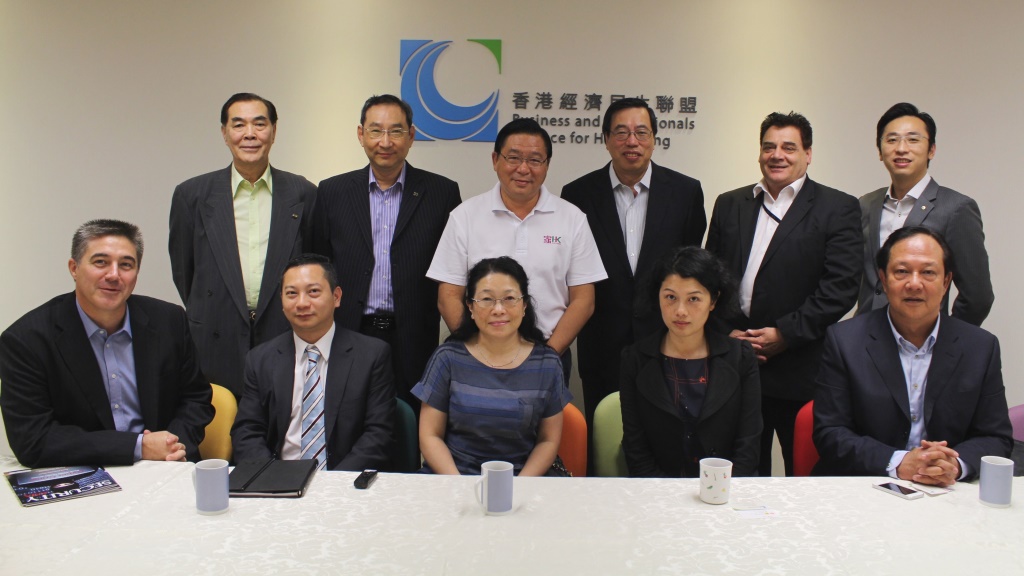
Hong Kong is currently experiencing a manpower problem across various sectors. The unemployment rate remains at a low level. Just a month ago the Labour Department reported there were over 100,000 private sector vacancies. At a meeting with representatives of the Business and Professionals Alliance for Hong Kong (BPA) today (September 10), the security industry reflected that it had problems of hiring staff. In response, Chairman Mr Andrew Leung proposed that more training and promotion opportunities should be offered to attract young people to the industry.
The security industry covers many roles including manning the doors of buildings, guarding, escorting, security equipment and anti-theft measures. Chairman of the Hong Kong Security Association, Mr Douglas Renwick, said while there were about 220,000 people with Security Personnel Permits, vacancies in the industry had hit 5% to 10%. Due to the limited working population, he noted that many industries were even trying to compete and attract each other’s staff. He remarked that if legislation in respect of standard working hours was passed, which required the current double-shift system to be split into three shifts, hiring would become all the more difficult.
The Association hopes that some legislators will champion their cause in the Legislative Council to help resolve the manpower shortage, ensuring sustainable development of the industry and safeguarding Hong Kong’s continued safety and stability. The proposals include exploring the possibility of allowing security guards within housing blocks to continue to work beyond the age of 65 so that the industry could have greater flexibility in hiring.
Chairman Mr Andrew Leung said he understood the importance of the industry to Hong Kong’s safety and residential security. He shared the view that the serious manpower shortage across various industries was also affecting the security industry. He suggested that in attracting young people, different industries should endeavour to provide training and promotion prospects, apart from just pay conditions. More opportunities would not only enhance the image of the industry but also increase upward mobility for young people.
Vice Chairman Mr Jeffrey Lam said inadequate manpower had led to a sharp rise in labour costs, creating pressure to operating costs and inflation. He called on society to be practical in resolving the manpower shortage problem, including studying the option of conditional import of labour to cope with inadequate and mismatched manpower resources.

 Follow
Follow